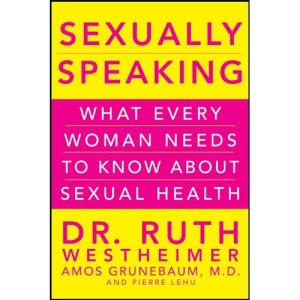Paraphased for the sake of paraphase at some parts.
- Irregular bleeding. Can include many different variations, such as irregular periods, an increased or decreased flow during your period, and spotting at other times.
- Hot flushes. Doctors only prescribe hormone replacement thearpy (HRT) when women have severe symptoms and its benefits outweigh the risks).
- Breast tenderness.
- Premenstrual syndrome. Keep a log for a period of several months so that you can describe to your doctor exactly what’s happening to you. The more information your doctor has, the more likely he or she will be able to help you. This is also true if your symptoms suddenly worsen as you enter perimenopause.
- Increased fatigue. One of the best things you can do to reduce these feelings of fatigue or depression is to exercise (assuming there is no underlying physical ailment that is making you feel tired). Exercise causes your body to release endorphins, which will elevate your mood and thur reduce fatigue.
- Vaginal dryness. In additional to producing less lubrication after menopause, the tissues that make up your vagina get thinner and become less elastic (after all, your vagina no longer needs to stretch to allow a baby to get through). These changes can also make sex less comfortable and even painful.
- Sleeping difficulties. Can stem from hot flashes that wake you up in the middle of the night and then don’t allow you to fall back to sleep, or they can come from your having to get up several times to go to the toilet.
- Frequent urination. One of estrogen’s many duties is to maintain your bladder and urethra in a healthy condition. When your levels of estrogen begin to drop in perimenopause and menopause, one result is the weakening in these parts of the body. As a result, you may find that you have to go to the toilet more foten or that you leak urine at certain times, such as when you cough or sneeze.
- Mood swings. It is important to try to judget what exactly is happening to you. If you feel sad because of an actual symptom, it may be easier to overcome that on your own than it is if you feel depressed because of a drop in hormone levels, which you can’t control.
- Changes in your sex drive. Some women discover that without the risk of pregnancy and with interruptions because of “that time of the month”, their sex lives blossom. It may also help if their children are gone, and the couple has added privacy.
Extracted from Sexually Speaking: What Every Woman Need To Know About Sexual Health (2012) by Dr Ruth K Westheimer and Amos Grunebaum and Pierre Lehu, pp. 184 – 190.



